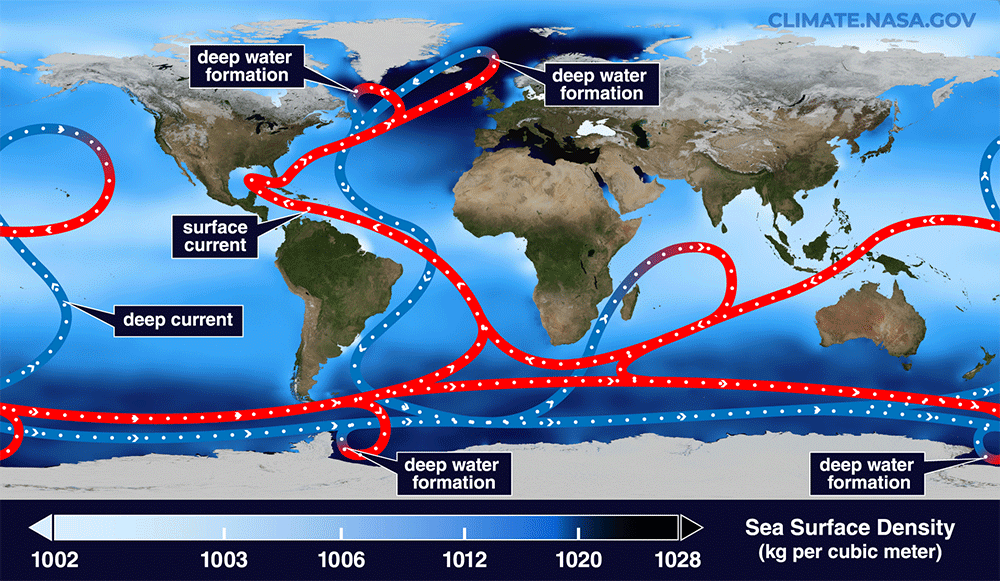According to a new study, the Atlantic Meridional Overturning Circulation (AMOC) – which helps regulate the Northern Hemisphere’s climate – could collapse any time between 2025 and 2095.
A critical system of ocean currents could collapse far sooner than previously predicted under the pressure of human-driven climate change; an alarming new study suggests.
The shutting down of the Gulf Stream, which is called the Atlantic Meridional Overturning Circulation (AMOC) by scientists, would have devastating impacts on people and ecosystems.
It was already known to be at its weakest in 1,600 years due to global warming and researchers noted warning signs of a tipping point in 2021.
The recent findings estimate a timescale for the shutdown of between 2025 and 2095, though it’s most likely to occur in 2050 if greenhouse gas emissions are not dramatically reduced, once again underscoring the urgency of transitioning away from the consumption of fossil fuels.
‘I think we should be very worried,’ said Professor Peter Ditlevsen, who led the study. ‘This would be a very, very large change. The AMOC has not been shut off for 12,000 years.’
In short, the AMOC is a complex tangle of currents that works like a giant global conveyor belt.
It transports warm water from the tropics toward the North Atlantic, where the water cools, becomes saltier, and sinks deep into the ocean before spreading southwards.
It plays a crucial role in the climate system, helping regulate weather patterns planet-wide.
But an influx of fresh water from the accelerating melting of Greenland’s ice cap and other sources is increasingly smothering the currents.
If it were to collapse as a result of of this, rainfall patterns around the world would be disrupted and major floods and storms would increase, leading to further sea level rises in the North Atlantic basin among other concerning repercussions.





















